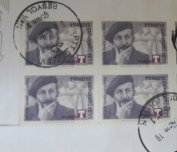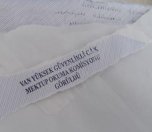Click to read the article in Turkish
Examining the applications of inmates who were prevented from accessing certain newspapers and magazines in several prisons across Turkey, the Constitutional Court has ruled that their freedom of expression guaranteed by the Article 26 of the Constitution has been violated.
In the verdict of the Constitutional Court, it has been indicated that "rather than the personal conditions of inmates, categorical reasons such as whether they are convicted of a terror crime and whether they are incarcerated in a high-security prison are effective in preventing them from accessing newspapers and magazines."
The Court has also ruled that there is "an extreme arbitrariness" among different penal institutions when it comes to evaluating whether the same publication is given to inmates and convicts with the same status.
'No mechanisms in place to prevent arbitrariness'
In its verdict no. 2016/12936 entitled "Recep Bekik and Others", the Constitutional Court has also expressed the opinion that "there is not a system in place to prevent arbitrariness" in that regard.
Moreover, the court has concluded that in evaluating to decide whether they will accept the newspapers and magazines or not, the prisons do not follow "consistent criteria as put forward by the Constitutional Court."
'A structural problem in the system'
In its ruling, the Constitutional Court has underlined that several verdicts of violation given by the Court are not taken into account in practice:
"Though the Constitutional Court has given several verdicts of violation on the same issue until today, the interventions of this nature and individual applications against them are continuing."
In its ruling, the court has also referred to "a structural problem" in the current system when it comes to accepting publications to penal institutions.
Accordingly, referring to the Article 26 of the Constitution in the light of these justifications, the Constitutional Court has ruled that the freedom of expression of the applicants has been violated.
What happened?
Certain issues of newspapers and magazines bought by the inmates in several high-security prisons were not given to them in accordance with the decisions of penal institutions' educational institutions though there was not a verdict of confiscation given for these publications.
In the related decisions of the educational institutions, it was stated that the publications in question were not allowed to enter the prisons on the ground that "there were content praising the terrorist organization and its leader and constituting terror propaganda in them."
The judgeships of execution objected to the complaints that were filed by the inmates against these decisions and the heavy penal courts did not accept their objections against these rejections, either. In response, several inmates appealed to the Constitutional Court. Making a joint evaluation on these applications, the court has given a single ruling. (AS/SD)





-132.jpg)




